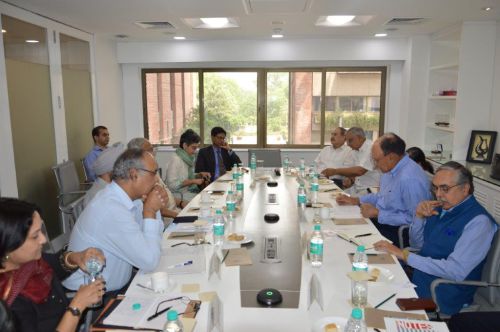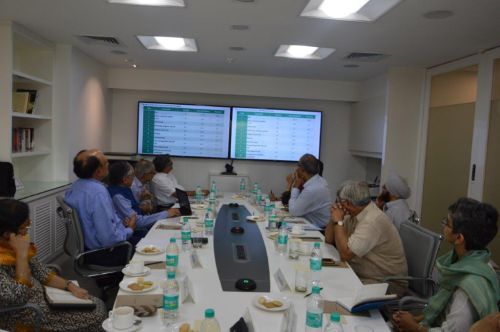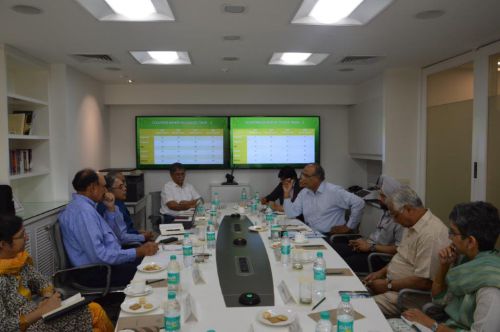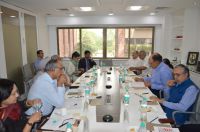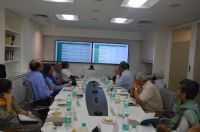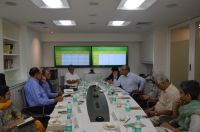DPG Roundtable series on India's economy "Changing Discourse on Globalisation: Where does India stand on trade"
DPG Roundtable Series on India’s Economy
Abstract of Proceedings ofRoundtable on: “Changing Discourse on Globalization: Where does India Stand on Trade”
MAY 9, 2018
The Delhi Policy Group (DPG) organised a roundtable discussion entitled:“Changing Discourse on Globalization: Where does India Stand on Trade”, from 1100-1230 hrs. on May 9, 2018.Discussions at the roundtable were moderated by Dr. A. Didar Singh, I.A.S. (Retd.), Senior Fellow, DPG. Dr. Arpita Mukherjee, Professor, ICRIER and Dr. Harsha Vardhana Singh, former DDG, WTO led off the discussion.
Ambassador H.K. Singh, Director General, DPG, while welcoming the participants, stressed the strategic importance of aligning India’s diplomatic goals and stratetic interests with its international trade policy. Dr. Didar Singh introduced the subject through a powerpoint presentation,outlining trade statistics and FTAs executed by India.Dr. Arpita Mukherjee, in her presentation, analysed the existing trade agreements and raised issues that have been a concern for Indian business. These include lack of analytical research and want of better inter-ministerial coordination. Dr. Harsha Vardhana Singh,while comparing the ranking of countries on trade stressed the importance of the rules based global trading system.
Several of the experts present,while appreciating the need for higher growth in India’s trade, pointed out some of the flaws in multilateral trade agreements and how some countries continue to exploit the system. Some experts raised the issue of large economies like the US and China sometimes not really playing by global rules but in fact misusing or gaming the system to their benefit. It was therefore recommended that the processes at the WTO need to be changed or reconstructed.Some also argued that differences between trade and strategic issues must be borne in mind while negotiating future FTAs.
Overall, the interaction amongst the experts was lively and energetic and there was general consensus that Indian exports need to grow at a much higher rate so that India’s global footprint on trade issues becomes more impactful.



